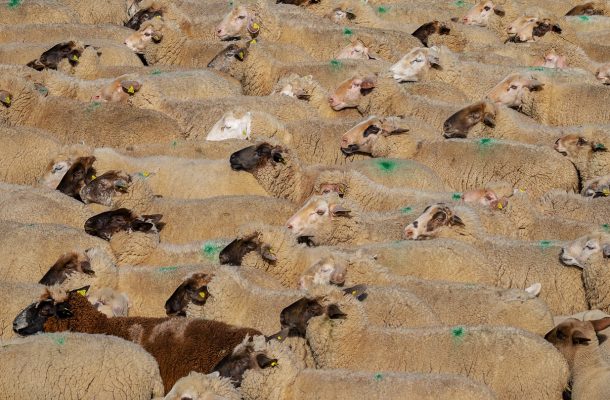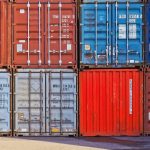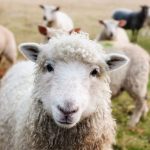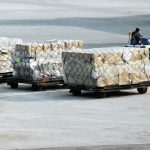Agriculture Department ignores science, allows high-risk sheep shipments

The Department of Agriculture and Water Resources has announced proposed conditions for live sheep exports during the 2019 Northern summer. Under the proposed arrangements, shipments won’t be allowed in June, July and August but can proceed in May.
As part of the Heat Stress Risk Assessment Review, the Technical Reference Panel determined on scientific grounds that sheep would suffer severe and unavoidable heat stress on shipments during May.
“Based on the Department’s own heat stress modelling, shipments should not be allowed to go to the Middle East in May,” said Animals Australia CEO Glenys Oogjes.
“The Australian public was promised that decisions would be based on the science. Had that been the case, there would be no shipments during May. Talking tough is one thing. Demonstrating conviction through your actions is another.”
“This decision delivers only half of what is needed and effectively rubber-stamps the limited restrictions the exporters themselves had already agreed to.”
The Department’s reasoning that “there was little evidence of significant animal welfare issues on voyages during May 2018” selectively ignores years of data from May shipment reports showing heat and humidity at levels that cause severe heat stress.
Footage from May 2017 shows sheep bogged in melted faeces and suffering heat stress. In May 2018, the Department’s own shipboard observers described open mouth panting of the sheep as they struggled in severe conditions.
The Technical Reference Panel’s recommendation that environmental conditions in the Middle East must be taken into account has also been ignored.
“Allowing shipments during May effectively allows Middle East importers to stockpile Australian sheep in feedlots across the extremes of the summer months, with all of the well-known welfare implications.”
“This capitulation to the industry only reinforces the findings of the Moss Review which found the Department of Agriculture is more concerned with facilitating trade than safeguarding the welfare of animals,” said Ms Oogjes.








